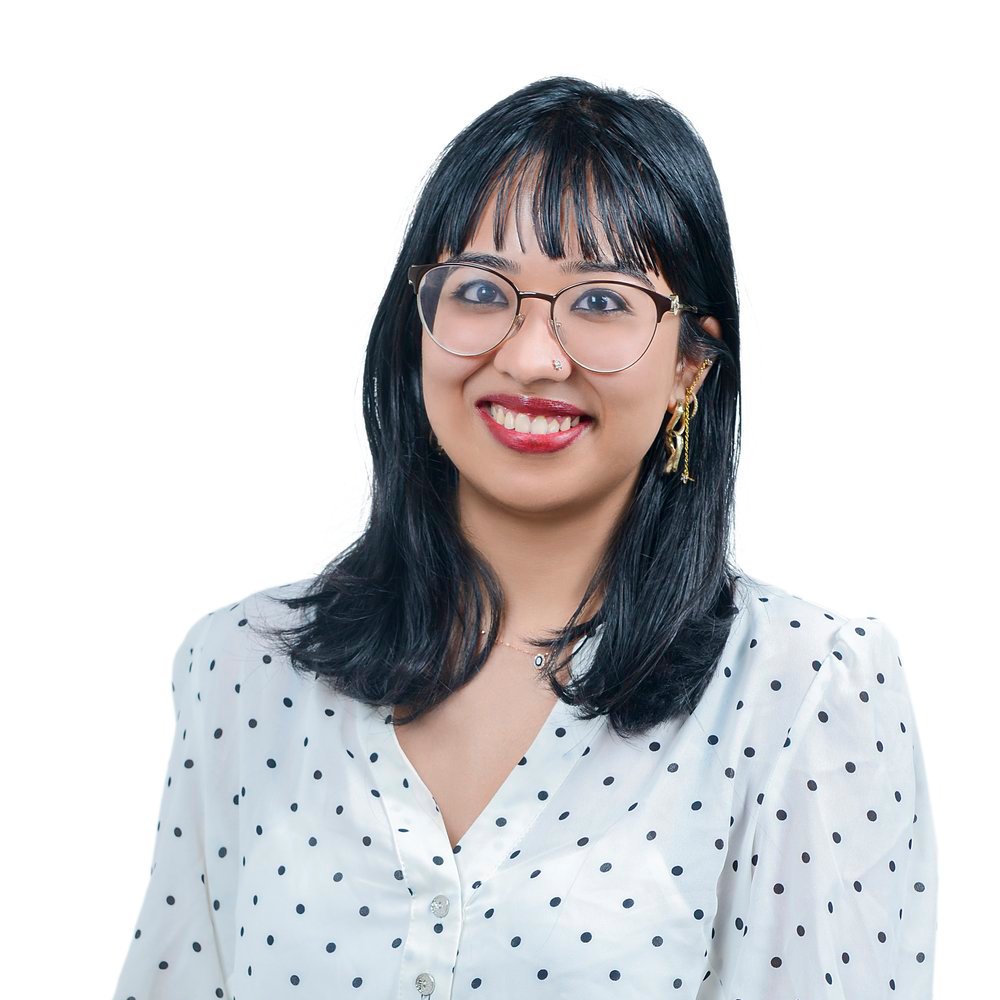Bipolar disorder
Bipolar disorder (previously known as “manic depression”) is a mental health condition that is typically defined by severe and dramatic mood swings including highs (hypomania or mania) and lows (depression). It is important to note that:
These changes in mood in turn affect emotions, energy, and day-to-day functioning.
These changes in mood happen over a period of several days or weeks, not moment-to-moment.
These changes in mood can be chronic (persistent) or episodic (occurring occasionally) in nature.
Our mental health professionals are here to help you, whether you need to heal or want to thrive.
Get in touch to find out how we can help you. Contact us however you feel most comfortable, for example Whatsapp message us, or feel free to call us on +971 56 895 2347. You can also email or simply send us a query via our online form. Instagram message, Facebook chat… whatever works best for you!
Our goal is to make you comfortable.
How common is bipolar disorder?
According to the World Health Organization (WHO), in 2019, 40 million people (1-5% of the population) were reported to experience bipolar disorder.
What are the different types of bipolar disorder?
Bipolar disorder is classified in three ways: Bipolar I, Bipolar II and cyclothymic disorder (cyclothymia).
Bipolar disorder I:
This form of bipolar disorder (bipolar i) is characterized by severe highs and lows that last several weeks at a time. The manic episodes are prolonged and may entail severe consequences, occasionally even requiring hospitalization for the individual’s safety.
Bipolar disorder II:
This form of bipolar disorder (bipolar ii) is characterized by very severe lows or a major depressive episodes that last for a long period of time, however, the manic episodes are less severe and last for a shorter period of time. These types of manic episodes are called hypomanic episodes.
Cyclothymic disorder (cyclothymia):
This form of bipolar disorder is characterized by the experience of these highs and lows at a less severe level. However, that does not mean that the individual’s life is not impacted on a daily basis.
What are the symptoms of bipolar disorder?
Keeping an eye out for and recognizing symptoms is vital when it comes to bipolar disorder, particularly for the “highs” as they may be misinterpreted as positive changes or may not be consciously recognized as “symptoms”. In general, symptom identification is broken down into two parts - symptoms associated with the major depressive episodes and symptoms associated with the manic episode. Additionally, a manic episode can present in a more severe “manic” form or a less severe “(hypo)manic” form.
Depressive symptoms of bipolar disorder:
Depressed mood
Loss of interest/ pleasure
Weight loss or weight gain
Insomnia or hypersomnia
Fatigue
Feelings of worthlessness or excessive and inappropriate guilt
Decreased concentration and motivation
Thoughts of death or suicide
Mania/hypomania symptoms of bipolar disorder:
Inflated self-esteem or grandiosity
Decreased need for sleep
More talkative than usual or pressure to keep talking
Flights of ideas or subjectively racing thoughts
Distractibility
Increase in goal directed activity or psychomotor agitation
Excessive involvement in activities with high potential for painful consequences
What are the causes of bipolar disorder?
As with most mental health conditions, there is no single identifiable cause that determines the presentation of bipolar disorder in an individual.
Genetics:
Research suggests that genetics and environment play a huge role in the development of bipolar disorder in an individual. Numerous studies have found that people with bipolar often have at least one close relative with depression or bipolar disorder.
Triggers:
A stressful situation can trigger a manic episode. This could include a breaking up of a relationship, death of a loved one, abuse, overwhelming stress, or sleep disturbances. It has also been found that certain medications may trigger manic episodes.
Chemical imbalances in the brain:
Some evidence highlights that Bipolar disorder I may be triggered by certain imbalances in the brain. The chemicals responsible for controlling the brain's functions are called neurotransmitters, and include noradrenaline, serotonin and dopamine. Dysregulation of noradrenaline can trigger a major depressive episode or manic episode.
How can we treat bipolar disorder?
Collaborative care is of utmost importance for the successful management of bipolar disorder. A combination of medication and supportive psychotherapy is shown to be the most effective course of treatment. Here are some of the treatment options:
Psychiatric medication:
Lithium salts (mood stabilizers)
Antidepressants
Antipsychotic medications
Anticonvulsants
Benzodiazepines
Effective psychotherapy modalities:
Interpersonal and social rhythm therapy
Cognitive Behavioral Therapy
Psychoeducation
Family focused therapy
Group therapy
Frequently Asked Questions
How are mood swings/mood episodes different from Bipolar disorder?
Mood swings are a very common human experience. Bipolar disorder is a serious and debilitating disorder that can significantly impact an individual’s daily life. It is very important to recognize the severity of bipolar disorder and how trivializing it can be to compare it to regular mood swings.
What is the difference between manic depression and bipolar disorder?
What was previously known as manic depression has now been renamed to bipolar disorder. This change was made mostly due to the fact that the former was severely stigmatized and not well understood. The change of the label was aimed to reduce the negative attitudes people held towards the disorder.
Is bipolar disorder treatable?
Symptoms of bipolar disorder may come and go and would typically need lifelong treatment. While this may sound discouraging and frightening, all it means is that with the correct professionals and diagnosis followed by an appropriate treatment plan, bipolar disorder can be controlled and individuals are able to live normal and productive lives.
Thrive Specialists in Bipolar Disorder
Dr. Kate Prozeller
Licensed Psychologist
Dr. Kate Prozeller is a CDA-licensed psychologist. She holds her PsyD in Counseling Psychology from Saint Mary’s University in the United States. Dr. Kate provides individual therapy to adults, couples therapy, and English-language art, sand, and play therapy to children and adolescents. Prior to relocating to Dubai in 2019, she has worked as a psychologist in the United States, serving a variety of patient populations and across hospitals, private practice, and university settings.
Pashmi Khare, M.Sc.
Licensed Social Counselor
Pashmi Khare is a CDA-licensed psychologist with MSc in Counseling Psychology from Christ University, India and has been practicing for more than 8 years in India and UAE. She provides counseling for adults, adolescents, and couples in English, Hindi, and Urdu. She has a special interest in supporting individuals with fertility issues and PCOS.
Maša Karleuša Valkanou, M.Sc.
Licensed Psychologist
Maša Karleuša Valkanou is a CDA-licensed psychologist in Dubai. As a certified Systemic Family psychotherapist, she works with individual clients, adults or children. She is specialised in work with adolescents. She works with couples, parents or the whole family together. Her work covers various psychological difficulties and background including psychotic disorders, addictions, neurotic disorders (depression, anxiety, panic attacks etc.), psychological trauma, abuse, self-harm, suicidal thoughts and feelings, behavioural, emotional and problems in relationships or family problems.
Jessica Rosslee, M.A.
Licensed Psychologist
Jessica Rosslee is a DHA-licensed Clinical Psychologist. She obtained her Master’s degree in Clinical Psychology at the University of the Free State, South Africa, in 2011. Jessica’s clinical interests and extensive expertise cover a broad range of mental health conditions or problematic concerns.
Joslin Gracias, M.A.
Licensed Psychologist
Joslin is a CDA-licensed psychologist. She holds an M.A. in Clinical Psychology from S.N.D.T. University in India. Joslin works with adolescents, adults, and couples who are experiencing depression, anxiety, relationship difficulties, trauma, and burnout/stress.
Sam Menon
Licensed Psychologist & Early Career Professional
Sam is a DHA-licensed Psychologist. She holds an M.Sc. in Abnormal and Clinical Psychology from Swansea University in the UK. She works with adolescents and adults who are experiencing depression, burnout/stress, and difficulties adjusting to new phases of life (university and workplace). Sam is part of our Early Career Professional (ECP) program, which means that she works closely under the supervision of Clinical Advising Director, Dr. Chasity O’Connell. In an effort to make therapy more accessible and support the growth and development of clinicians in the field, we are offering an adjusted pricing structure through our ECP program.
Zuha Zubair, M.Sc.
Licensed Psychologist
Zuha is a CDA-licensed psychologist. She holds an M.Sc. in Clinical and Abnormal Psychology from Swansea University (UK). She used a client-centered approach deeply rooted in compassion and warmth, tailoring therapeutic aid to each client based on their needs and personality. She has been trained in Cognitive Behavioral Therapy, Dialectical Behavioral Therapy, and Acceptance and Commitment Therapy.
Dr. Ash Shishodia
Consultant Psychiatrist
Dr. Ash Shishodia is a Western-trained General Adult Psychiatrist (Addiction Psychiatry endorsement) and Neuropsychiatrist with over 15 years experiencing working with an ethnoculturally diverse population. I am comfortable working with mild, moderate, and severe cases, including major mental illness, and neurological disorders with mental health.
Dr. Lara Foresi
DHA-Licensed Specialist Psychiatrist
Dr. Lara is a European-trained General Adult Psychiatrist with extensive experience in mood disorders and substance misuses. She is both trained and experienced in working with people from diverse ethnocultural backgrounds. Dr. Lara works with mild, moderate, and severe cases of psychiatric disorders, neurodiversity and mental health..
Dr. Manuela Paone
DHA-Licensed Psychologist
Dr. Manuela is a DHA-Licensed Clinical Psychologist (Dubai) with active licenses in the UK and Italy. She has over 20 years of experience supporting adults through a range of challenges including anxiety, depression, and relationship issues (parent-child as well as marital). Dr. Manuela has a special interest in neurodivergence, including Autism Spectrum Disorder and ADHD. She has a wealth of experience in the UK and Middle East, which has provided her with an opportunity to work with people from diverse cultural contexts, integrating culture, religion, and personal background into her work.
Dr. Jessica Rios-Habib
DHA-Licensed Psychologist
Dr. Jessica Rios-Habib is an American psychologist who has obtained licensures to practice in the US, Canada, and Dubai. Her university training at the University of North Carolina, Chapel Hill (USA) and the University of Miami (USA) have earned her a B.S., MS.Ed., and a Ph.D. in Psychology. She completed a post-doctoral fellowship at the University of Miami’s Miller School of Medicine (USA), followed by another at University of Toronto’s Sick Kids Hospital (Canada), which further specialized her skills in pediatric psychology, child development, and family systems.
Having been based in Dubai since 2010, and a strong believer in research-based science, compassionate ethics, and a growth mindset for individuals and organizations, Dr. Jessica has expanded her reach to not only clinical, family, and school/athlete populations, but also professional and corporate organizations striving for greater success and healthier well-being in the workplace and global settings.
Learn More About Dr. Jessica →
Our mental health professionals are here to help you, whether you need to heal or want to thrive.
Get in touch to find out how we can help you. Contact us however you feel most comfortable, for example Whatsapp message us, or feel free to call us on +971 56 895 2347. You can also email or simply send us a query via our online form. Instagram message, Facebook chat… whatever works best for you!


































